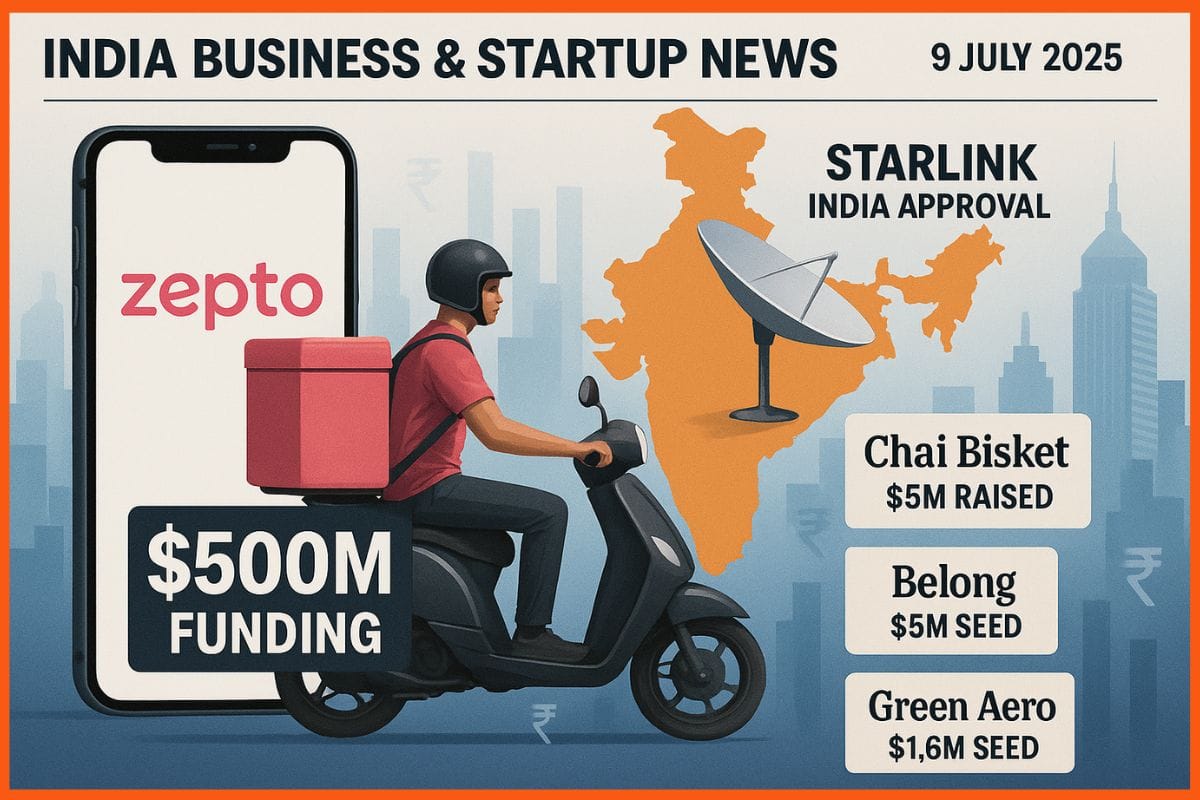From Cookd’s pre-Series A funding to Flipkart’s ESOP buyback and regulatory updates in transport, here’s your quick roundup of the most important funding deals and business highlights for 11 July 2025.
Daily Indian Funding Digest – 11 July 2025
| Company | Amount Raised | Lead Investor(s) | Purpose |
|---|---|---|---|
| Cookd | ₹16 crore | Spring Marketing Capital | Expand in South India and enhance product line |
| Gramik | ₹17 crore | Samman Global Ventures, others | Strengthen rural distribution and scale to new areas |
Cookd raises INR 16 crore in pre-Series A round
Cookd, a Chennai-based food brand, raised INR 16 crore in a pre-Series A round. Spring Marketing Capital led the round, joined by Eternal Capital, PeerCheque, and Sunicon Ventures.
The company plans to use the funds to expand across Tamil Nadu and Kerala. It will also invest in new products like spice blends, cooking pastes, and biryani kits.
Cookd has built a strong D2C presence with retail and quick-commerce partnerships. Its content marketing strategy has garnered over 6 million social media followers.
Gramik secures INR 17 crore to boost rural agritech
Gramik, a rural agritech startup, raised INR 17 crore in a bridge round. The round saw participation from Samman Global Ventures, Money Creeper Investment, and industry veterans like Balram Yadav and Irfan Alam.
Gramik helps village-level entrepreneurs (VLEs) supply agri-inputs and advisory services to small farmers. It currently operates in 12 districts with 1,200+ VLEs.
The fresh capital will support its expansion across Uttar Pradesh, Maharashtra, and Jammu. Gramik aims to reach over 3,000 VLEs and 1 million farmers before its planned INR 56 crore Series A.
Key News Highlights for 11 July 2025
Flipkart launches $50 million ESOP buyback initiative
Flipkart has initiated a $50 million employee stock-option buyback, enabling around 7,000–7,500 current and former staff to sell up to 5% of their vested shares. This marks the company’s largest such liquidity effort and forms part of its strategy to reward and retain talent ahead of a potential IPO.
Shiprocket introduces Shunya.ai to optimise supply chains
Logistics firm Shiprocket has unveiled Shunya.ai, a sovereign multimodal AI assistant designed to streamline MSME supply chains. The tool utilises conversational AI (text/voice) to help sellers with courier selection, tracking, ETA estimates and customer alerts, all within its dashboard or API ecosystem. Built and hosted entirely in India, it aligns with data-localisation norms and positions AI as a strategic asset ahead of Shiprocket’s IPO aspirations.
Awfis enters furniture manufacturing to reduce costs
Co-working operator Awfis has expanded its business into furniture manufacturing and B2B sales. Following shareholder approval, the new arm will supply ergonomic work furniture for both its own centres and external businesses. This vertical integration is expected to reduce capital expenditure and open fresh revenue channels.
PhonePe & Google Pay dominate UPI in June
In June 2025, UPI transactions reached 18.4 billion worth INR 24.04 lakh crore. PhonePe led with 8.55 billion transactions (46.5% volume share, INR 11.99 lakh crore value), followed by Google Pay with 6.54 billion transactions (35.6% volume, INR 8.41 lakh crore value). Paytm held the third slot with 6.9% share (1.27 billion transactions). Together, PhonePe and Google Pay made up over 82% of UPI volume.
Maharashtra reviews private bus aggregator operations
Maharashtra’s transport ministry is initiating a regulatory review of private bus aggregators, such as Uber Shuttle and other app-based intercity services to ensure compliance with Motor Vehicles norms. This follows earlier scrutiny of bike taxi services and signals potential new licensing and safety regulations.
Priya Nair appointed HUL’s first woman CEO & MD
Hindustan Unilever Ltd (HUL) has named Priya Nair as Managing Director and Chief Executive Officer, effective 1 August 2025—the first woman to hold the position. Currently president of Unilever’s Beauty & Wellbeing division, Nair succeeds Rohit Jawa, who is stepping down after two years. Her appointment has received positive market reaction.


